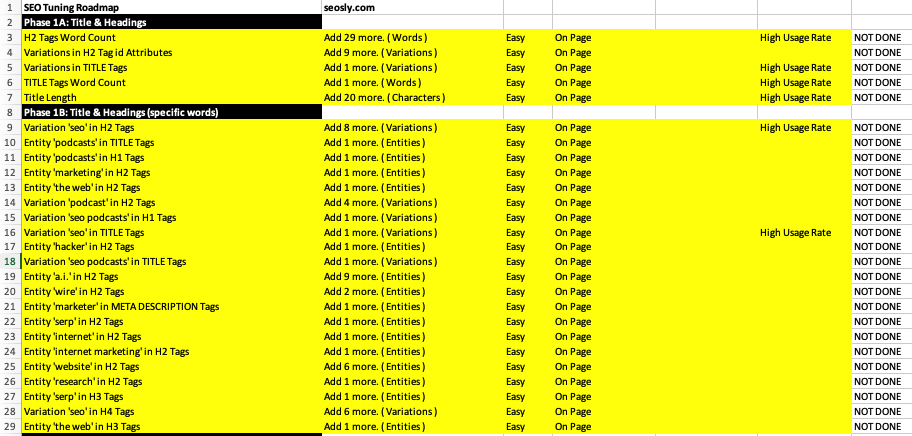Updated: January 28, 2024.
In this quick SEO FAQ video, you get to know Olga’s insights and commentary on whether keywords still matter for SEO in 2024.
Are keywords still important for SEO? Are you wondering if you should still focus on keywords in 2024? Do keywords still matter for SEO? What is the correct approach?
Check the video and notes below to learn about whether keywords are still important for SEO.

Do keywords still matter for SEO? [Video]
Here is video where I explain this in more detail.
Do keywords still matter for SEO? Notes
Keywords are still important for SEO for the following reasons:
- Whether you like it or not, keywords (words or key phrases) are still what people type into the search box (or speak in the case of voice searches) to find the answers to their questions.
- To meet the needs of your users, you still need to know what words they type into Google, and – in most cases – you want to include them on your website/web page.
- By placing keywords in the “strategic” places, such as the title, H1 or other headings, copy, anchor text of internal links, etc. (on-page SEO), you help Google understand what your page is about. Without that, Google may or may not guess what your page is about.
Cora Pro SEO Software 25% OFF
Cora SEO Software has been an absolute game-changer for me. This tool measures thousands of factors and tells you exactly which ones appear to influence rankings and how much you need of each to compete with higher ranking competitors.
You don’t need to believe what I’m saying. Just try for yourself! I have a special lifetime deal 25% OFF (and free unlimited training) for my visitors.

Keywords matter for SEO – the right approach
Here is how you should approach keywords:
- Use the Cora SEO tool that will help you dominate rankings for almost any keyword
- When analyzing keywords, always consider the search intent behind them. Your page will never rank for a given keyword if it does not match the search intent behind it.
- The easiest way to check the search intent of a given query is to simply type it into Google. What type of content ranks in top positions? Informational content? List posts? Roundup reviews? E-commerce?
- Some tools, such as
Semrush will do the hard work and indicate the search intent of keywords for you. - Note that there are cases when Google is not sure about the search intent and may display varied results, i.e. a mix of shopping results with info content.
- Search intent may shift over time. Keep that in mind especially when analyzing ranking drops.
- When thinking about keywords, never look at them in isolation, and don’t be afraid to change the wording if it makes sense (i.e. add stop words if necessary). There is nothing worse than placing a keyword unnaturally just to make sure it is exactly what your keyword tool showed you.
- Think about keywords as topics and keep in mind that a successful web page will rank for thousands of keywords, including the ones that are not present in the copy.
- Always look for questions that people ask about that topic (keyword) and answer them on your web page. Tools, such as Answer the Public or AlsoAsked.com can help you with that.
- Stick to the rule of one topic per page to avoid cannibalization.
- SEO scores in SEO tools like Rank Math or Yoast can be helpful but don’t attach to them too much. Use them as a guide only. You don’t need all green to rank!
- Get interested in semantic search and follow people who talk about it.
- Keyword stuffing is bad but keyword density is important. If you don’t believe it, please watch this interview I did with Ted Kubaitis from SEO Fight Club:
